5th January 2025
The morning wind spreads its fresh smell.
We must get up and take that in,
that wind that lets us live.
Breathe before it's gone.
Rumi
Me with Ramil , my bedouin friend of the Tarabin tribe, 1986, Sinai
In my previous article Demons From the Depths , I mentioned that back in the 1980s I was working on an independent film about sufism in Egypt, specifically about the Mullids which are the Sufi saint birthday celebrations held around the mosques. I spent time living alongside the Sufi people and learning their way of life. I had a tricky relationship with the producer I was working with. We were together for a while in some kind of thing that wasn’t a thing, because I was gay but didn’t bother to tell him. He also had a boyfriend but didn’t bother to tell me until I knew. We were staying in a room in this pound-a-night filthy, cockroach- infested set-up in Cairo called the Oxford Pension, which was a front for pretty much everything. Everybody was using opium including us. We used to eat it, disguising the vile taste in yogurt. Incidentally the Oxford later got closed down but its legendary status, its infamy has now become culturally tattooed into the folklore of the Egyptian golden era of travel (at least according to Cate Blanchett who hung about there once when she was a wanabee).
At some point me and the producer (who I’ll call matey) weren’t getting on so I moved out of our room and into a room with another traveller called Simon. I had also made friends with the Syrian odd jobs boy , Khaled, who spent his days changing lightbulbs and fittings even when they didn’t need changing. Someone mentioned the Sinai desert and that seemed a good idea so the three of us, Simon, Khaled and myself ended up heading down that way. Me and Matey had had to stop filming anyway after I had got crushed in a crowd outside a mosque which resulted in the camera lens getting broken, and us having to wait several weeks for a replacement part to come from Japan. Back then everything was made in Japan. And humour was still legal so you could make inappropriate jokes about Nikon Fa wielding Japanese tourists in London snapping everything from a paving slab to a pigeon, without fear of being arrested for a non crime hate non incident.
The Sinai peninsula is the gateway to the east from Africa, forming the no man’s land between Africa and Asia. The ancient trading route known as the Kings Highway, which origins can be traced back to Nabatean times, ran from north Africa up to Mesopotamia through Sinai. Starting in Egypt it passed through Nekhel to Aqaba and on via transjordan through Damascas to the Euphrates river. It is mentioned in the old testament as a route Moses sought permission to cross after leading the Israelites out of Egypt. Today it is still in existence as a route crossing the Levant, forming part of the modern road through Wadi Musa, serving as gateway to the ancient city of Petra in Jordan.
In a similar way that Ukraine is strategically vulnerable to powerful interests due to its positioning as a natural border area and bridge between eastern and western Europe, Sinai, nestled between Africa and Asia, is also a gateway of vital importance to the controlling elites and their vested interests. Another pivotal area of land that comes to mind in that regard is Xinjiang in northwest China. The old silk road trading route passed through here from middle East to the far east. Xinjiang is the home of the Uighers and just happens to be steeped in mineral wealth. Travellers there have noted that amongst the Uyghers (now mostly muslim) there are some practising sufism. The shamanic tradition in this area has extremely ancient roots stemming originally from the Caucusus mountains and back pre-Atlantis. It most probably merged with another wave of shamanism from further east which rode in with the mongol invasions led by Gengis Khan. The Uyghers claim to be the original inhabitants of Xinjiang , descendants of the Toquz Oghuz (the nine clan people). This is probably what makes these people hard to control from the Han Chinese point of view. No matter where they roam, tribal people tend to ‘get in the way’ always being a threat to the ruling globalist cult control freaks. They are not so easy to police. This fear of the nomad is actually where our ideas of ‘other’ come from which is what satan actually means. From the greek ‘satanas’ meaning ‘adversary’. The earliest use I have been able to find of the word ‘satan’ is in describing a desert dweller. A bedouin. In Europe that would be a gypsy. In America it would be the native indians. In Australia, the aboriginees and New Zealand the maori. If the bible was written today, in Britain satan would be the homeless bod on the street.
Before coming to Egypt I had been studying anthropology in an evening class after work and had got some certificate supposedly proving I was qualified in the subject. Today I know better than to assume paper means anything at all. Anyhow I decided to play anthropologist and get some material for what I planned to be another, future film about the bedouin people. This additional documentary I planned turned out not to be, as on return to London I continued on a descent into drug addiction and mental breakdown so I couldn’t put into practice what I had learned, and at that point could only manage bar work and not much else. But my experience with both the Egyptian sufis and the Sinai bedouins was buried somewhere in my heart and learning about the bedouin way of life was priceless because it came at a time of major transition for those desert people. When I was there in the mid 1980s Sinai had not long come out of its occupation by Israel, something they had endured since the six-day war of June 1967 when Israel had also occupied the West Bank, East Jerusalem, the Golan Heights and, Gaza. The peace settlement between Egypt and Israel after the Camp David Accords started the process of the return of Sinai to Egypt and this meant that by 1982 Israel had withdrawn its last settlement from the peninsula and razed its settlement at Yamit to the ground. Unfortunately the fate of the rest of the occupied territories was different, and is now well known, with East Jerusalem and the Golan heights effectively and illegally annexed.
Last Israeli flag being lowered in Sinai, 25/04/82
This history is part of the reason that Egypt will not allow the Gazan Palestinians to be resettled into Sinai, something that Israel has attempted to engineer in the past as part of its process of ethnic cleansing. Egypt may fear a new Nakba. The brutality of the Lebanese civil war is also something that will not have escaped notice of the Egyptian authorities. When I tried to enter Israel back in 1986, to visit the holy places, I was refused entry at the border at Taba due to having Egyptian stamps in my passport. Having an official media pass with me did not help. Relations between the two countries were still very sensitive. Sinai being returned to Egypt, meant the bedouin were adjusting once again to new laws and rules about what they were or were not permitted to do. One thing that was starting to become disturbingly apparent was the beginnings of western culture forcing itself on the bedouin tribes. A few had acquired TVs in their tents and some of the men were wearing suit jackets over their thoab (long robe). This looked weird although they still wore the keffiyah and agal (headdress with band) . A few had acquired trucks and would blare out rock music on old tape recorders and drink beer. Some would wear gold rings and watches. There was something that hit me as not right about it. Almost comical but in a warped kind of way. It was an odd transition period as Egypt was trying to consolidate its rule by utilising the tourist industry for development. The bedouin women had wisely and thankfully not started adopting western commercial crap. Still immune from the changing cultural landscape, they were kept away from tourists and just continued wearing their traditional long, black, intricately embroidered dresses and usaba and burqa veil.
The main difference between ordinary Egyptians and Bedouins is that the latter neither have, nor do they want, any nation state. They are a nomadic, tribal people, carrying strong familial links through generations, proud of ties to their ancestors. Several different bedouin tribes inhabit Sinai and the surrounding lands. All are of Arabian origin, although the Jebeliya tribe claim some of them descend from European christian soldiers who travelled there apparently about 1500 years ago to protect the monastery of St. Catherine. This is the (now Greek orthodox) monastery at the foot of Jebel Musa (mount Sinai) which was originally built in the coptic era to house the burning bush of Moses fame, only later becoming dedicated to Catherine.
St. Catherine’s Monastery, Sinai
We stopped at the monastery for a few days, making a 3am start one morning to climb to the top of Jebel Musa in order to see what is famously supposed to be the most beautiful sunrise in the world. There were a few clouds around so it was an intermittent ‘most beautiful sunrise’ but it was a great view anyway.
The bedouin people were willing and eager to act as subjects for my anthropology experiment. They assisted me also to get a better grasp on the arabic language and the local dialect. It was a profound learning curve. It added a whole new layer to what I had already learned about the Sufi concept of unity of being (wahdat al wujud) and their esoteric, ecstatic, mystical, metaphysical journey through existence (I call this metamysoterical, keeping in mind that Sufis like to keep things simple). Keeping it simple is not a phenomenon that comes naturally to me. I tend to vere towards the polar extremes of over-complication, which adds nothing to my wellbeing, peace of mind or quality of life. Thought for the day is therefore ‘keep it simple’ and ultimately that means keeping it present. Relevant.
Be only here and now, feel, live, look, laugh, sing, dance, touch, believe.
This is one of my favourite feel good videos set to Rhiannon Giddens music:
Dancing on beach and forest in Avalon
Khaled, Simon and I travelled around Sinai living from hand to mouth. Khaled was regularly stopped by the Egyptian police but because I had a British passport, I used to tell them he was looking after me and then they would leave him alone. In those days a British passport was a useful thing. Khaled didn’t have a passport, but it was his mission in life to get one and get to the USA.
Khaled in Sinai
Sometimes we would sleep out in the open and one night there was a violent sandstorm and we didn’t even have a tent, not even a simple wind-breaker. It was hard to get through that. By the morning we were freezing. The desert is very cold at night, I already knew that from having been in the Australian outback. Another time we somehow got lost in the desert and ran out of water. After several hours waiting by a dusty track we had a stroke of luck when a truck appeared and thankfully we could get back to the nearest village. One week we lived on only feta cheese and that was pretty mouldy by the time we found more supplies.
I remember getting stranded in a garage. There didn’t seem to be any way out of there so we stayed there for several days.
Simon, me and friend in garage somewhere in Sinai
On the back of the photo I have put ‘crazy guy we got stuck in the garage with for a week.’ I don’t remember him being crazy But that’s what is good about places like that, no questions asked, people just take you into their shelters and provide what you need till its time to leave. Egypt itself was very much like that, the people extremely hospitable.
The bedouin were not fussed about which religion or denomination you were, all were welcome and although most were muslim Arabs, this faith is intertwined with their own spiritual practices which are pre-islamic and include a strong belief in the supernatural, in astrology and a use of magic. These belief systems are closely connected with the harsh environment they need to negotiate from day to day. Some Egyptians incorrectly assume that bedouin must be of low intelligence. Far from it. Formal education is not the same thing as intelligence and my experience of these people is that their nomadic way of life actually enhances their intelligence. A lack of electricity, plumbing/water supply, modern conveniences etc actually makes for a higher level of creativity. The life living close to nature, surviving by grazing sheep, herding goats, and fishing requires a kind of faith which lends an understanding that is no so readily available in supermarkets, on sofas, in fridge/ freezers or online. That’s not to say you can’t have your once in a lifetime spiritual awakening at the tills in Tescos, you absolutely can, but it will probably take more of your life for you to get there and the people waiting in the queue behind you might not be that sympathetic to the cause.
Traditional bedouin music jam at Wadi al Qamar (valley of the moon), southern Jordan
After Jebel Musa and St. Katherine’s we went up to Nuweiba which is in the north-eastern part of southern Sinai. It lies about two thirds of the way up the coast of the gulf of Aqaba. There we met a bedouin of the Tarabin tribe called Ramil. I took notes for the film I was planning to make so kept a record of some of what he told me. He explained how it was easy for their tribe to exist without money, they drink the sweet, pure mountain spring water and subsist on fishing , navigating by the stars at night. The impression I got from Ramil was that his people believed that to be a westerner you had to forsake your sanity and your humanity for wealth. They weren’t far wrong with that assumption. Some of the younger men , 14 or 15 years olds were wearing jeans although still with their headdress. Most still used camels (including the ones I was with) but Ramil told me some of his people had now got trucks and took those into the mountains. Some of his friends were trading in cotton garb and some were running basic cafes, some selling quartz or other stones and making and selling silver jewellery. I can imagine that over the roughly 40 years since I was there, the south of Sinai has undergone a great deal of westernization during its development and Sharm el Sheikh is now a massive tourist resort.
We ended up going off into the mountains on camels with Ramil and some other bedouins. We had tents made out of goat hair which were light and strong and at night we gathered round the fire and listened to stories, recited poems and sang and gazed up at the stars. The spring water in the mountains really did taste sweet and we ate dates and figs and wild berries which we foraged along the way. In the evening we cooked rice mixed with spices and cooked flatbread/khubz on fired up hot stones
Simon (far left) , Khaled (with hat), Ramil and another bedouin with camels
It was arid and pretty hot during the day We travelled along wadis, I cannot remember exactly where we were, there are many wadis in Sinaii between mountain areas, some have water , some are dry. Ramil knew every tree and bush we came across. He told me how the bedouins have great respect for trees, cutting down a tree to them is like hurting a soul and they considered it a serious crime to cut a green tree. He gave me a substance derived from one of the thorn trees in the area .. He called it something like minrah and we drunk it in tea and it had mild psychedelic effects. A white bird flew over and dropped a feather which floated down then began growing and kind of turned into a living umbrella which became a sunshade. I sat underneath it with another bedouin guy and immediately I was part of mother earth and communicating with her. She sent me messages , I can’t remember the details but I remember that I could understand at a cellular level what I was hearing.
When we arrived back at the coast we camped on the beach and ate fish caught straight from the sea to cook over the fire with our rice and washed it down with some kind of bitter herbal chi. I remember these meals with the bedouins as tasting better than the best food I had ever had in my life. The bedouins did not use sugar in their chi, unlike the other Egyptians who drank their chi excessively sweet.
Me and Khaled with desert dog who befriended us for a while
The beautiful desert evenings cannot help but produce sufi poets:
Come,
let's scatter roses and pour wine in the glass;
we'll shatter heaven's roof and lay a new foundation.
If sorrow raises armies to shed the blood of lovers,
I'll join with the wine bearer so we can overthrow them.
With a sweet string at hand, play a sweet song, my friend,
so we can clap and sing a song and lose our heads in dancing
Hafiz
It sounds romantic, the way the bedouin live. It is but it is also harsh. They execute murderers and also certain crimes meant exile from the tribe which they term ‘exposure’ which in the harsh environment without support or help can be a slow and agonising death. The Bedouins believe that it is better to die with honour than to live with shame. They don’t see death as the worst thing that can happen. They see far worst scenarios. On that I concurred with them, since living hell is way worse than the prospect of ending it all. It was still a tradition to kill young girls under 16 if they had sex before marriage. They would also kill the man who slept with her. Women still did as they were told. I remember in Cairo looking out the window where we were staying and seeing a female child being circumcised on the roof opposite with what looked like a not particularly sterile blade.
Another friend we made on the way back down through Dahab was a 26 year old bedouin called Musa from Mzenah tribe who lived with his family in a hut. He made jewellery and sold it but despite the business tourism could generate for him, he told me that the tourist industry was having a detrimental effect on the bedouin way of life. His cousin Salem drank beer sometimes and wore an office jacket over his robe. He had got hold of a car too but he too said the emerging materialism was bad for the bedouin. They could now get water from a pump generator at a local cafe but they said they preferred the mountain water being purer and sweeter. They all had at least one camel and many had two or three camels. Although the women also rode the camels, they never came into the camp or cafe. Musa told me there were about ten families in his village but he was living alone in a hut as he was not yet married. His father was going to decide who he would marry. They kept donkeys and sheep as well as the camels. They didn’t have electric at that point in time. He was planning to live permanently in the mountains.
All the bedouins swam in the sea when nobody else was about. Musa knew the names of the stars and he thought when you died that is where you go. He knew the names of a long line of his ancestors. Although muslim, he did not take his religion very seriously but did pray five times a day as is islamic tradition. He didn’t like or watch TV and didn’t understand why some of his tribe were acquiring these western boxes in their huts. He preferred to spend the evening outside with both male and female bedouins for company. They would laugh and joke with each other. .There was a couple of them I remember who played a simsimiyya which was looks like a cross between a harp and a guitar
Here is the haunting sound of the simsimiyya played by another guy called Musa . This ancient instrument is used in Palestinian resistance songs
and here is the idyllic and melodic sound of the setar, a Persian instrument which is played by some Sufi sound of the setar
Other traditional instruments the play are the shabbaba flute made out of metal piping, which can be seen here in a Palestinian resistance poster image
and the horse-stringed rababa or rebab a kind of single-stringed ancestor of the fiddle and other bowed instruments
The women use their voice and do much of the singing. There traditional singing forms a kind of call and response style.
I was curious as to whether Musa ever got bored with his nomadic lifestyle , whether he would want to visit cities or live the fast life but he told me that although his people sometimes get restless , and visit Cairo maybe for a day or two, they soon find it too much and want to return to the desert and the mountains. He told me he would like to get to Meccah one day and that he knew two older men and women from his tribe who had already been. He told me about some of the children being educated in a school at El Tor over on the west (gulf of Suez) side. He said despite many Egyptians thinking his people are stupid they can all read and write. He thought the Egyptian government were helping them quite a bit ,providing cheap hospital access and some housing and electricity , something Israel had not done. But Musa said he preferred it under israeli control because at that time he could talk to girls more easily if he came across them on the beach. Being under islamic rules again made this more difficult. He mentioned to Khaled one day that a bedoiun girl had gone to the beach the day before and had been approached by an Egyptian who had offered her money for sex and she had been really angry due to this when she returned to camp. Musa did not want me to hear this information which shows the cultural differences in the kind of conversation they consider unsuitable for women.
I wanted to discuss concepts of time with Musa since exploration of time is , for me, one of the most fascinating subjects in existence. He made it clear that the bedouin concept of time is very different from the western one. He could go days without needing to know the time. Not an important thing to him. The stars and seasons speak for themselves and I could see that. They had no use for mechanical clocks or watches, at least back then. Although he believed his roots were in Saudi, he also believed the bedouins had been there at the beginning of the world. Salem told me bedouins came from Yemen and Saudi but originally they all came from God.
Musa was under the impression that Europeans think badly of Egyptians in general. He thinks this is down to the newspapers. He knew the newspapers were full of shit.
As Nietschze put it:
they vomit up their bile and call it a newspaper
Unfortunately somewhere in along the road in my chaotic life I lost all my personal film footage taken in Egypt and therefore only have the still pictures left and only a very few in Sinai. However there is some footage online of the finished documentary on the sufi Mullids which I helped research and film, which was later used by SOAS (school of Oriental and African studies) in the University of London, for educational purposes.
Arab culture always makes me feel like I belong, like somehow I have come home. It doesn’t feel like that in Britain, despite the fact I am English/Scots albeit with a bit of Roma thrown in. There is always this disconnection. I was born in the middle east and spent my first few years there, so that may be it, either way I find England doesn’t suit my temperament very well.
Me and possibly us in the distance
Khaled’s uncle when we returned to Cairo, wanted me to marry Khaled and offered us a camel and his shop if I would oblige. I weighed it up and decided I was not quite ready to be a muslim wife, even though being Syrian, Khaled was quite relaxed about his faith and not strictly orthodox sunni. I lost contact with them eventually as in those days there was no internet. It was hard to keep in contact with people, phoning abroad was still very expensive , so it was letters and they tailed off. I know Khaled got a better job as a manager in a hotel and I hope he found his way to America, as he wanted that so badly.
If I returned to Sinai today, I can imagine it will have changed quite a bit. But hopefully there are those who will carry on living traditional bedouin lives . I know Sharml Sheikh is just a tourist place now but as for the rest of Sinai, maybe its oriental appeal is not over yet. It is so important that the few human beings around the world who can still be counted as wildlife, are allowed to remain that way should they wish. The majority of humanity is now domesticated and the elites who farm the human animal can’t wait to capture and subdue the last exotic breeds. We are little more than machines and machines are very replaceable.
But there is still time ….
Listen for the stream
that tells you one thing.
Die on this bank.
Begin in me
the way of rivers with the sea.
Rumi



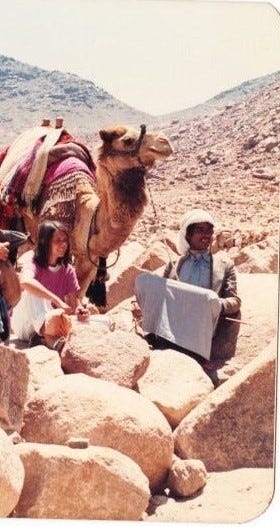
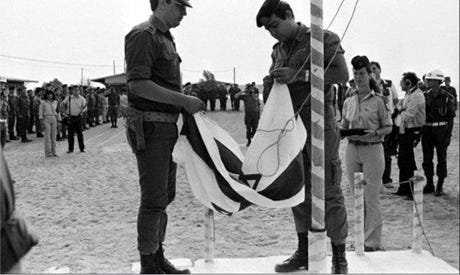

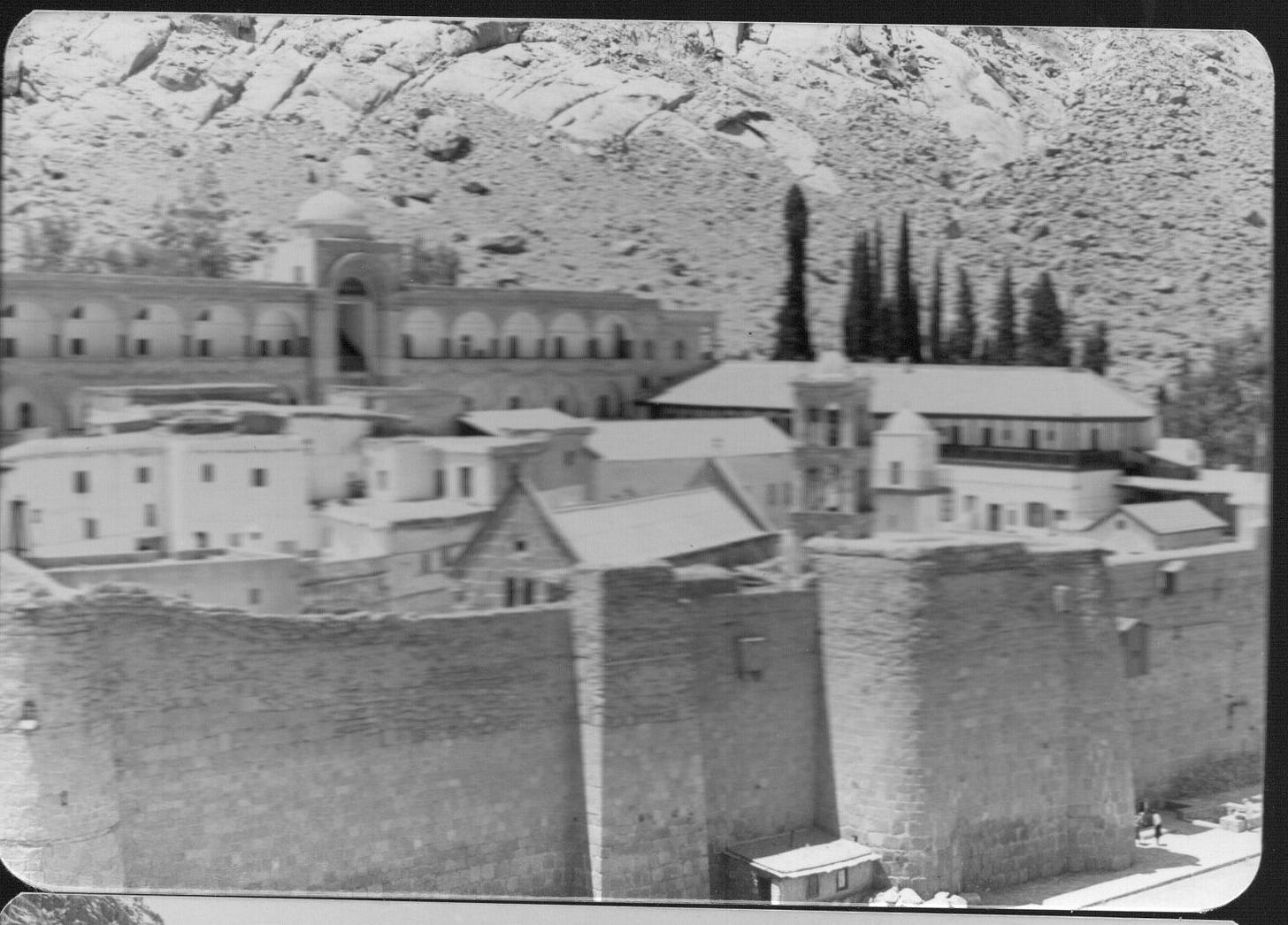
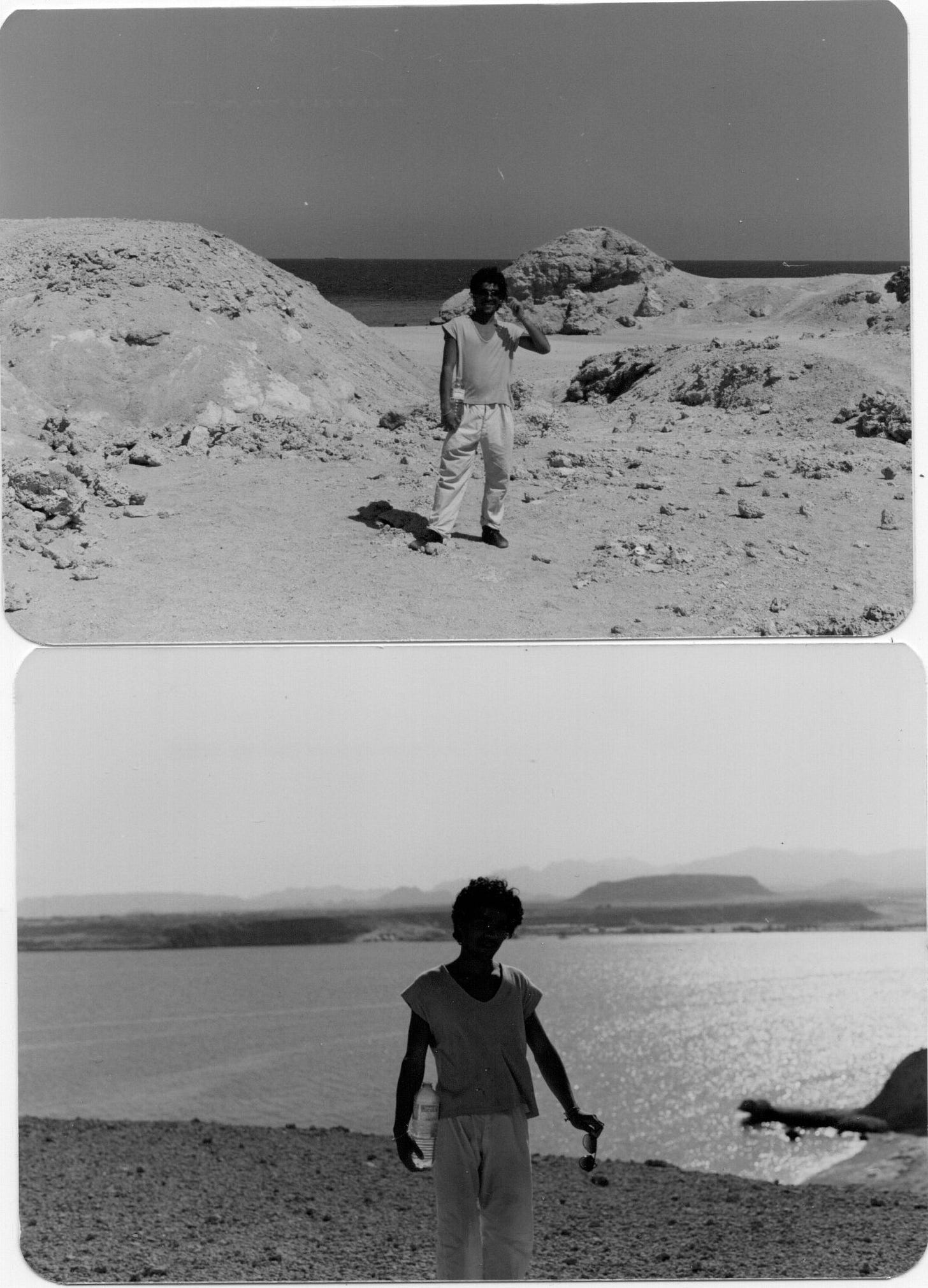
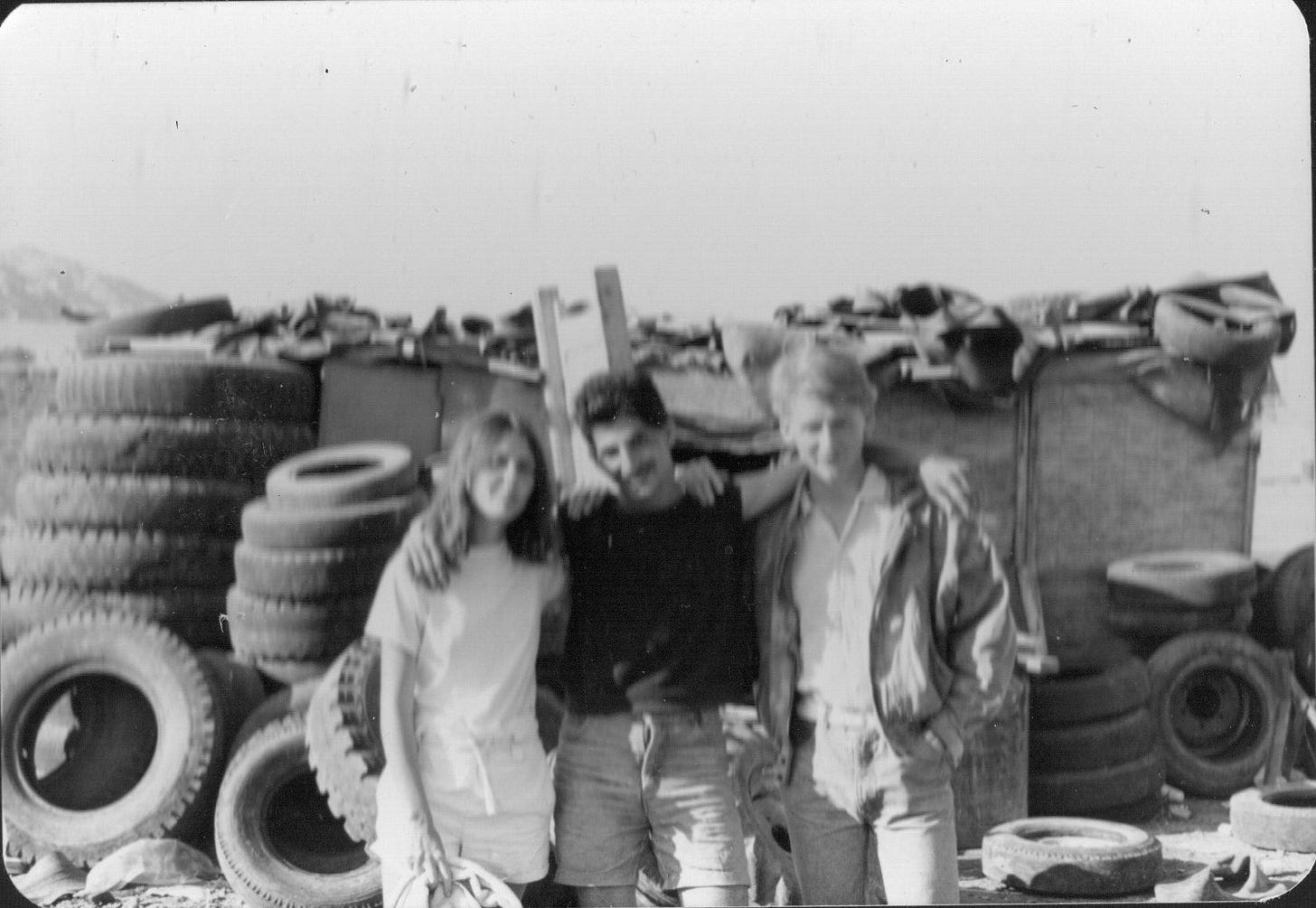
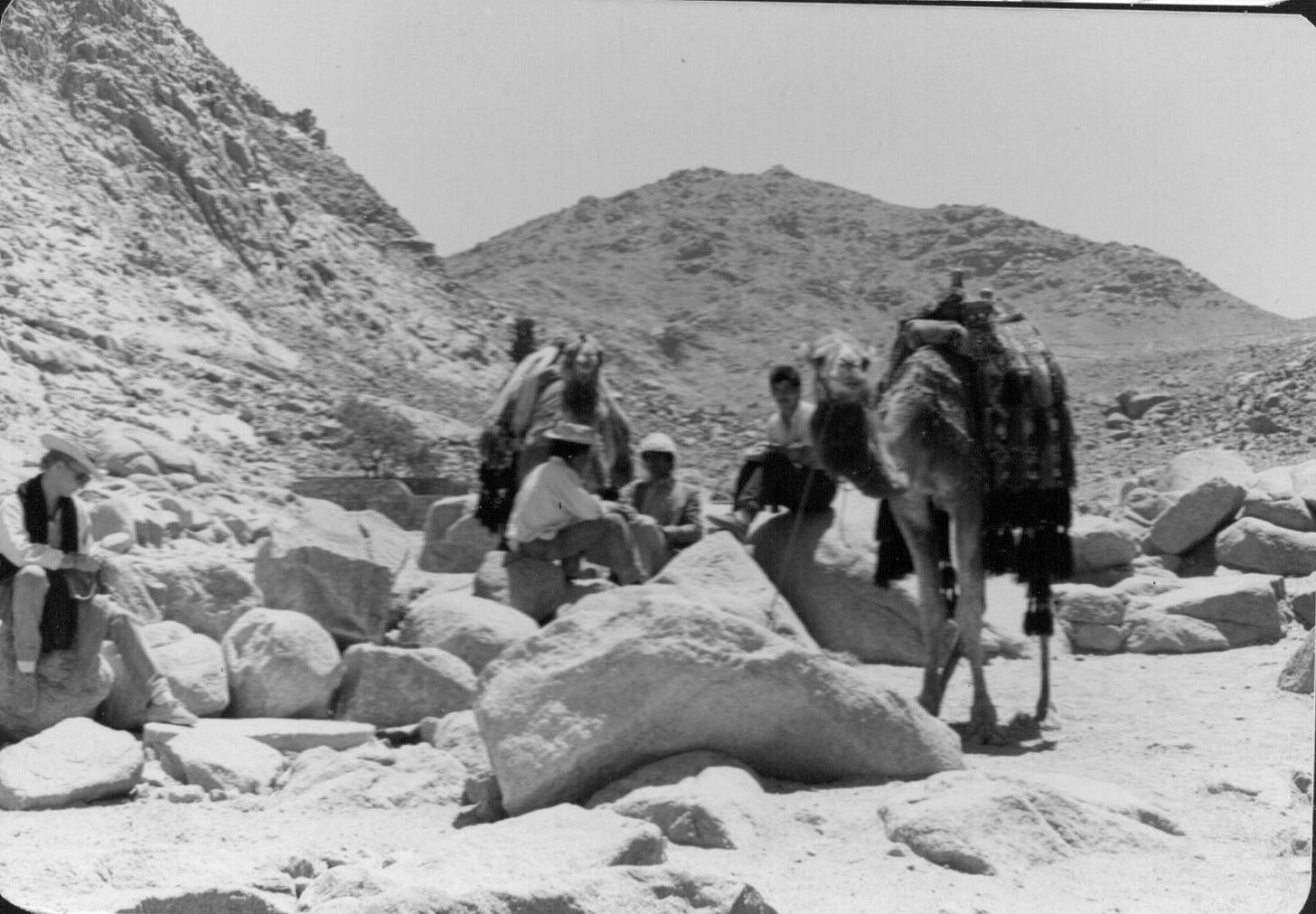
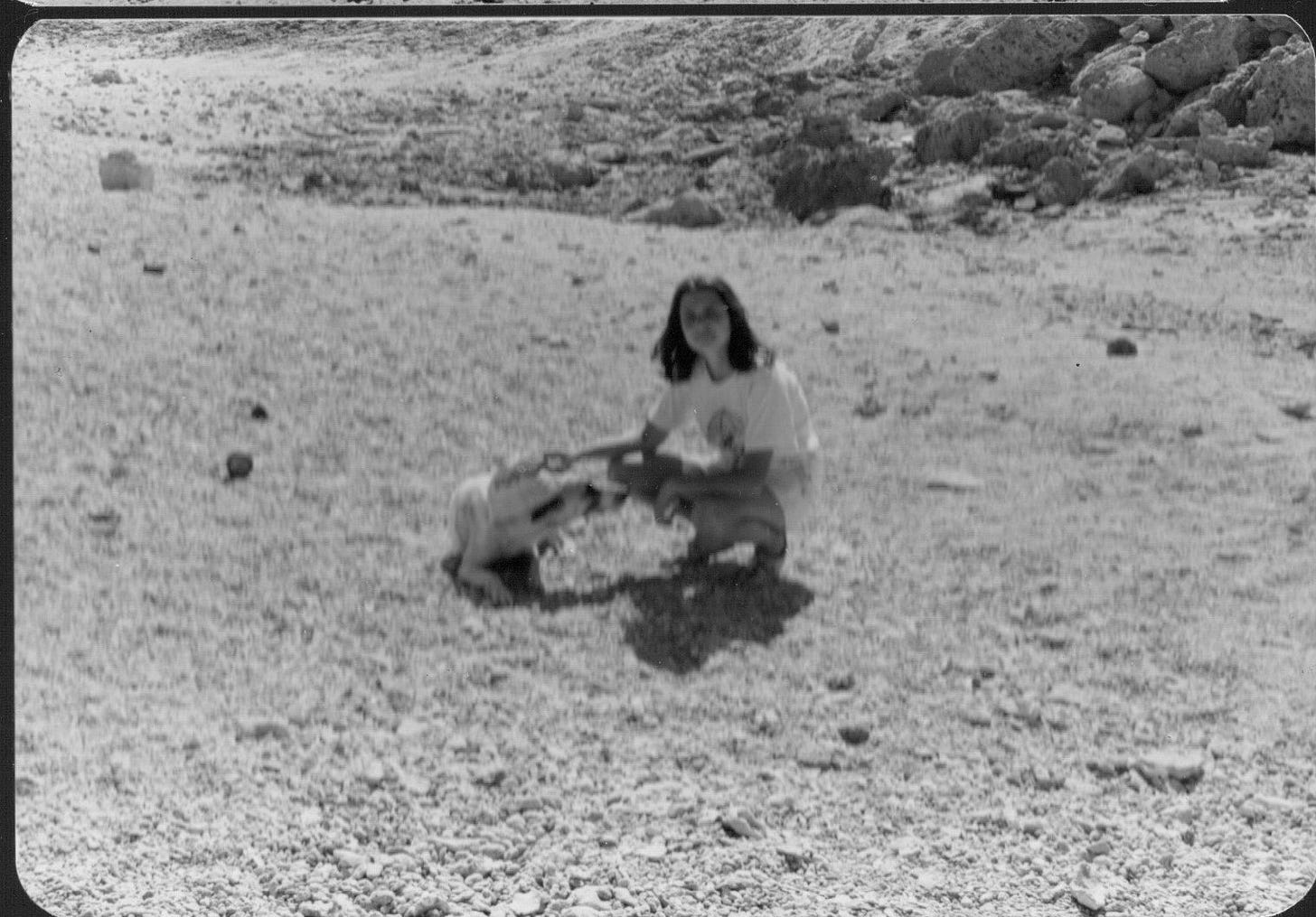
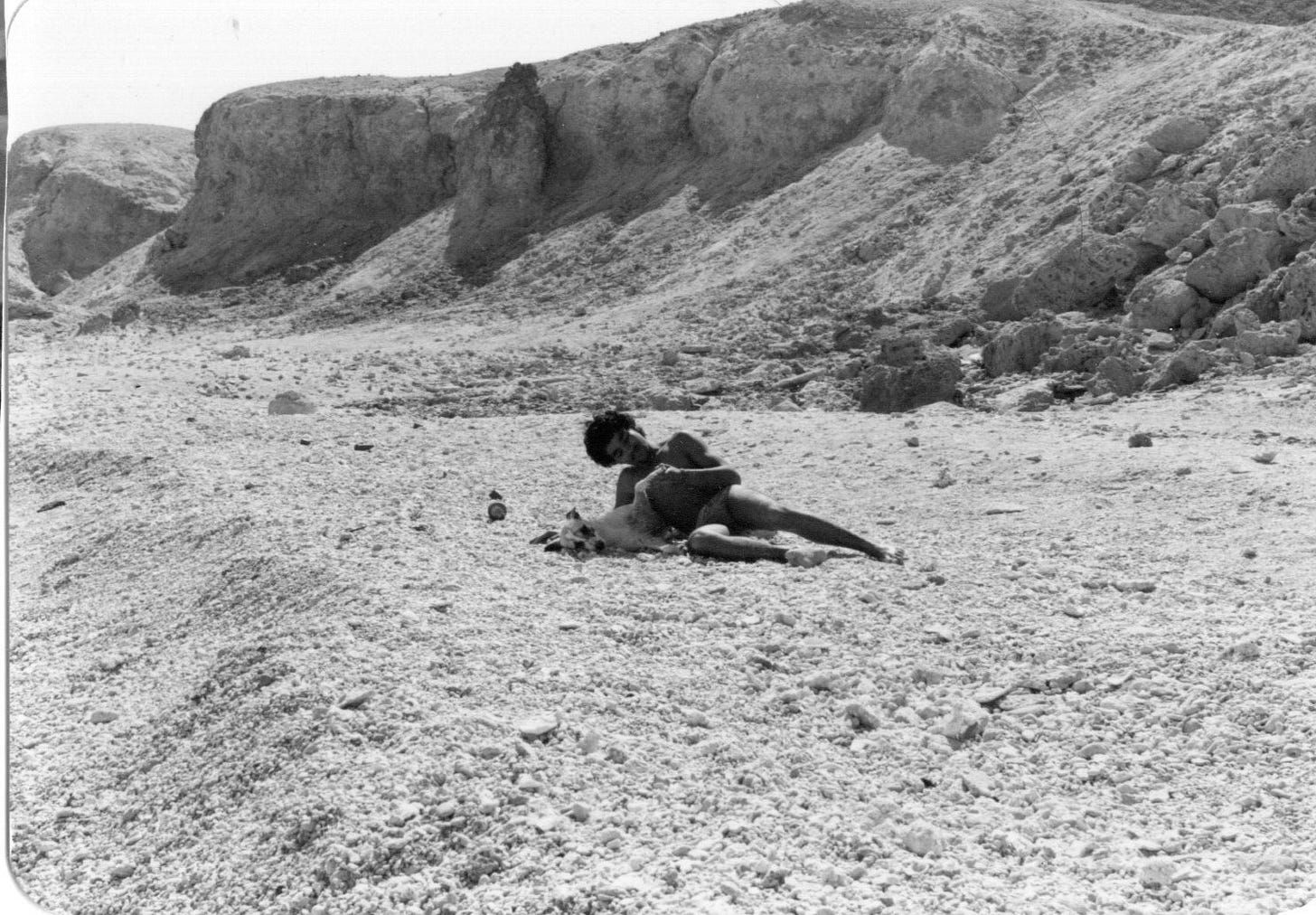


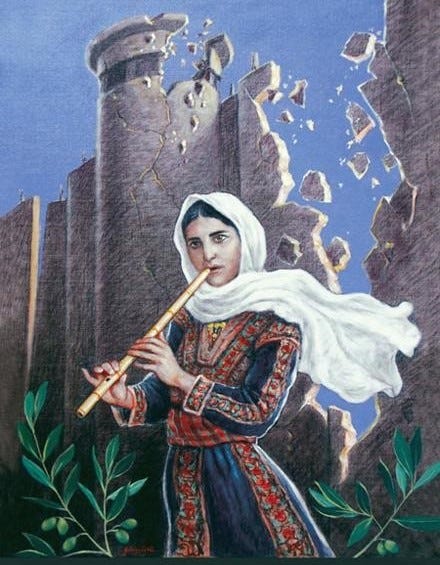

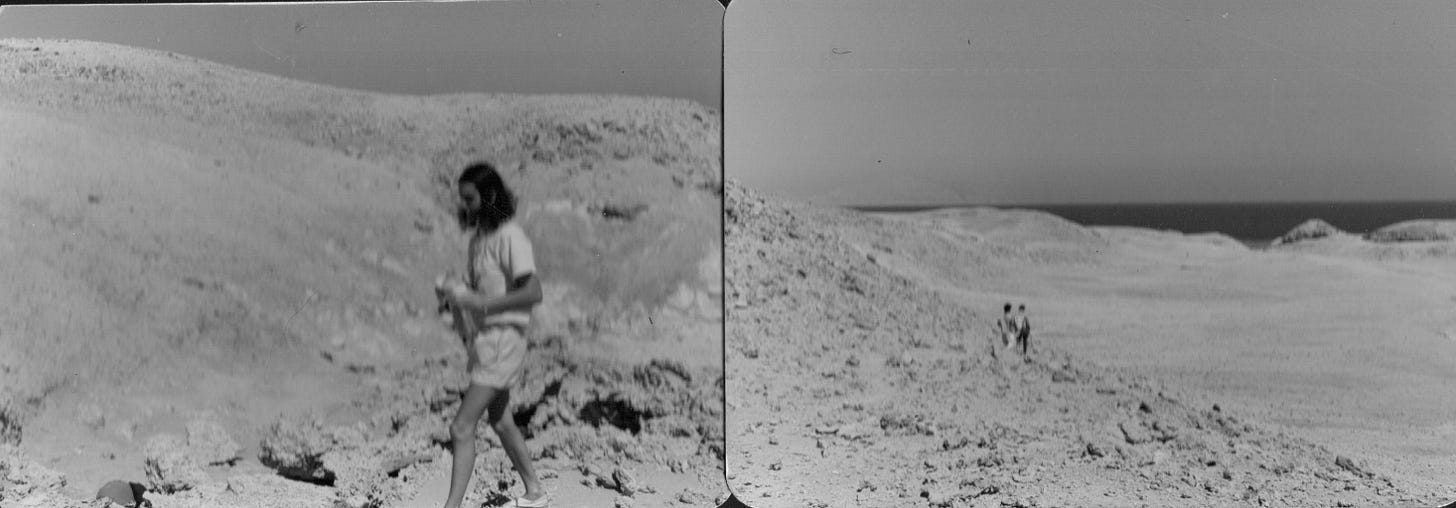
Beautifully soulful
Fascinating and transporting - such a brilliant reminder of the breadth of the world and the ways in which we can experience it. How narrowly we tend to live.